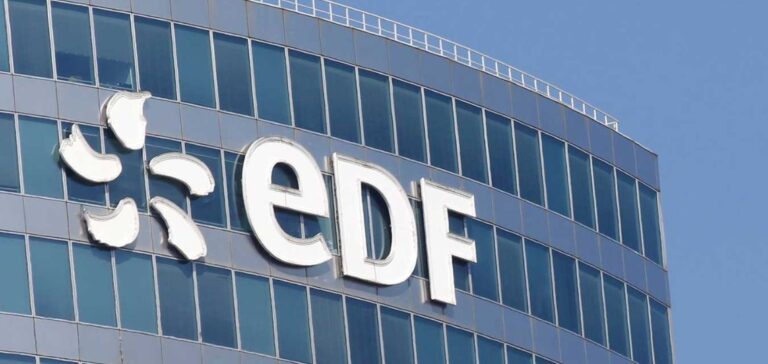EDF recently announced its withdrawal from the race to build Small Modular Reactors (SMRs) in the UK, a project designed to diversify and modernize the UK’s energy infrastructure. This withdrawal comes at a time when the French group is revising its plans for its SMR model, the Nuward, originally scheduled for 2030. This decision could significantly alter the landscape of energy production in the UK, a country where nuclear power plays a central role in the energy transition.
EDF ‘s withdrawal comes after the UK government named six companies, including Rolls-Royce and EDF, as finalists for a tender to build SMRs. Other selected companies include GE-Hitachi, Holtec, NuScale Power and Westinghouse, highlighting intense competition in this strategic sector.
The reasons behind EDF’s revised plans
The EDF spokesman said that the group was determined to continue supporting nuclear development in the UK, in particular by extending the life of existing plants and building new facilities. However, EDF has decided to reassess the design of its Nuward SMR to improve its chances of success and the technical feasibility of the project. This revision is seen as a strategic step to align the project with current technological and economic requirements.
In addition, EDF remains open to working with the British government on large-scale nuclear power plant projects. In May, EDF expressed its willingness to work on a third mega-nuclear power plant project in Wales, in addition to Sizewell C and Hinkley Point C.
The outlook for nuclear power in the UK
With the Labour Party coming to power in the UK, government support for new nuclear power plants, including SMRs, seems to be strengthening. The Labor Party’s program stresses the importance of new power plants in achieving energy security and promoting clean energy, while creating skilled jobs. This political direction could have a positive influence on current and future projects in the UK nuclear sector.
However, EDF’s withdrawal from the SMR race leaves a gap that the other finalists will have to fill. SMRs, which are seen as an economical and flexible solution compared with traditional power plants, will still require years of development before they can be deployed commercially.
The evolution of EDF’s Nuward SMR design could also present challenges and opportunities for the nuclear industry. This revision could enable EDF to offer a more advanced solution, better adapted to the future needs of the energy market.
The future of the UK nuclear industry will therefore depend on the strategic decisions taken by the companies and the continued support of government authorities. International collaboration and technological innovation will play a crucial role in achieving the goals of energy security and carbon reduction.
Developments in the field of SMRs and large nuclear power plants will be decisive in achieving these objectives, and the actions of key players such as EDF will remain under close scrutiny.





















